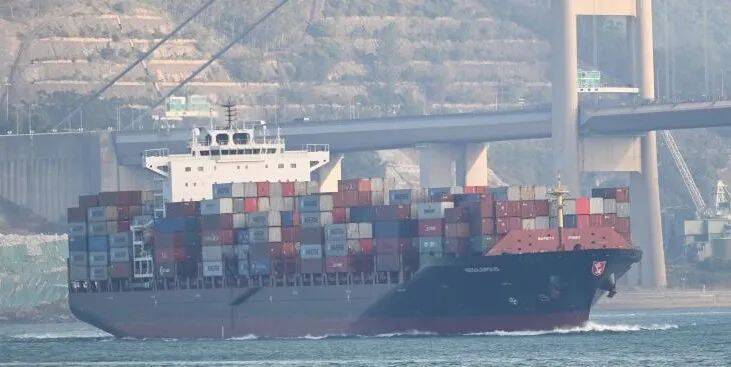Ethiopia strengthens logistics cooperation with Djibouti!
According to Ethiopian media reports, at a recent meeting in Addis Ababa in the Ethiopian capital, lobbyists representing Djibouti and Ethiopia in the field of logistics discussed how to promote trade between the two countries through cooperation. Ethiopia is a landlocked country with no access to the sea and relies heavily on the port of Djibouti for most of its foreign trade.
According to the CEO of Pefu International and Vice President of the Ethiopian Freight forwarders Association of Ethiopia (EFFSAA), improving links and cooperation between the Ethiopian Freight forwarding and Shipping agents Association and the Djibouti Freight forwarders Association (ATD) is critical to the effectiveness of the industry. It also said that the two sides have agreed to sign a memorandum of understanding (MoU) to work together to strengthen relations and establish a formal communication platform between the two sides. The two sides plan to formally sign a memorandum of understanding in the near future.
The meeting will be conducive to the development of many industries in Ethiopia, especially flowers, coffee and other major export agricultural products. But the biggest problem now is the situation in the Red Sea. Since the outbreak of a new round of Israeli-Palestinian conflict in October last year, in order to pressure Israel to stop its military operations in Gaza, the Houthi forces in Yemen have frequently attacked foreign merchant ships passing through the Red Sea. According to statistics, so far, the Houthi have launched nearly 80 attacks in the Red Sea, attacking more than 180 ships, causing a lot of damage.

And the situation in the Red Sea has not eased recently, but has become worse. It is reported that in mid-October, Yemeni Houthi forces used drones in the Arabian Sea to carry out an operation against a container ship, MEGALOPOLIS, operated by Maersk and flying the Maltese flag, and successfully achieved its goal. The company that owns the ship is alleged to have violated the ban on access to occupied Palestinian ports.
In addition, recently, the Yemeni Houthi-controlled capital Sana'an and the northern province of Sada were hit by US air strikes, including 6 air strikes in Sana'an and 9 air strikes in Sada province. According to a statement issued by the US Central Command, the air strike is aimed at destroying the Houthi's hard underground arsenal of missiles and other weapons, weakening the Houthi's military strength and its ability to attack passing ships in the surrounding waters.

After the air strikes, the Houthi issued a statement saying that the United States would pay the price for its actions. Therefore, in the future, the Houthi may increase their attacks on the Israeli mainland, and may also intensify the attacks on passing ships or US and British warships in the Red Sea area, so the situation in the Red Sea will still be tense for some time to come.
The situation in the Red Sea not only affects countries and ports in East Africa, but also has a serious impact on global shipping. Recently, according to media reports, MSC, Maersk, Dafei, Hebrot, HMM, ZIM and other shipping companies will announce price increases in November one after another, involving Nordic, Eurasian, Mediterranean, Middle East, India, Pakistan, Africa and other routes.
The rise in shipping prices will have a severe impact on many industries, especially the coffee industry, which is very dependent on maritime shipping. The increase in shipping prices will directly affect the transportation costs of coffee traders and manufacturers, and then affect the price of coffee beans.
At present, for the coffee industry in Ethiopia, the government has recently promised to improve coffee quality and production, but the ongoing armed conflict in the north of the country, although it has not directly affected the coffee producing areas, has led to a rise in local prices and increased production costs. At present, the situation in the Red Sea has not been eased, and there is still no progress on the port issue, so we can only look forward to strengthening logistics cooperation with Djibouti. Therefore, both the export volume and logistics costs of Ethiopian coffee may have an impact in the near future.
For more information about coffee producing areas, please scan the code directly and follow: coffee comments.
Long press the QR code to follow:
Important Notice :
前街咖啡 FrontStreet Coffee has moved to new addredd:
FrontStreet Coffee Address: 315,Donghua East Road,GuangZhou
Tel:020 38364473
- Prev

Copy tea color homework?! Bawang Tea Jiduo Store "stands for fines"!
▲ Click to pay attention| Daily Boutique Coffee Culture Magazine Coffee Factory Recently, Bawang Tea Lady opened new stores in Hainan, Fujian, Guangdong and other places. To celebrate the opening of the new store, many stores have launched a 9.9 discount, attracting many local citizens to buy it. You can see a long line of "nine twists and eighteen bends" at the entrance of many new stores
- Next

"So dedicated"! Ruixing employees go to work with illness?!
▲ Click to pay attention| Daily Boutique Coffee Culture Magazine Coffee Workshop Recently, when a customer went to a nearby Ruixing store to buy drinks, he noticed a white paper posted on the bar, which said,"The clerk has a fever and the cooking is slow, please don't rush." Thank you." After learning that the clerk was working with illness, the customer subconsciously praised
Related
- What grade does Jamaica Blue Mountain No. 1 coffee belong to and how to drink it better? What is the highest grade of Blue Mountain coffee for coffee aristocrats?
- What are the flavor characteristics of the world-famous coffee Blue Mountain No. 1 Golden Mantelin? What are the characteristics of deep-roasted bitter coffee?
- Can I make coffee a second time in an Italian hand-brewed mocha pot? Why can't coffee be brewed several times like tea leaves?
- Hand-brewed coffee flows with a knife and a tornado. How to brew it? What is the proportion of grinding water and water temperature divided into?
- What is the difference between Indonesian Sumatra Mantinin coffee and gold Mantinin? How to distinguish between real and fake golden Mantelin coffee?
- What does bypass mean in coffee? Why can hand-brewed coffee and water make it better?
- Unexpected! Ruixing Telunsu lattes use a smoothie machine to foam milk?!
- % Arabia's first store in Henan opens into the village?! Netizen: Thought it was P's
- Does an authentic standard mocha coffee recipe use chocolate sauce or powder? Mocha Latte/Dirty Coffee/Salty Mocha Coffee Recipe Share!
- What is the difference between Vietnam egg coffee and Norway egg coffee? Hand-brewed single product coffee filter paper filter cloth filter flat solution!

